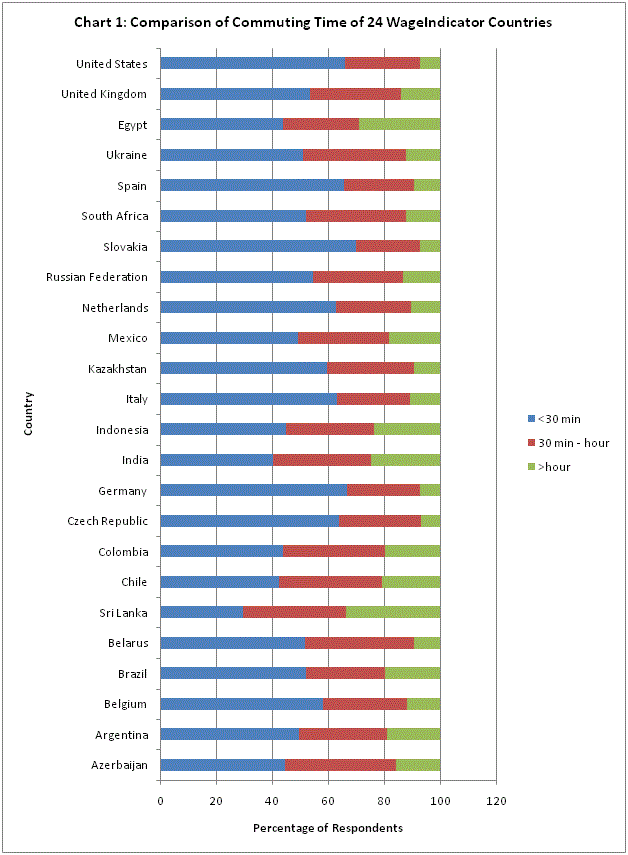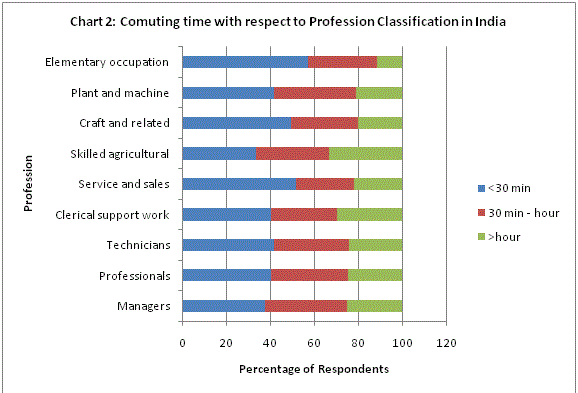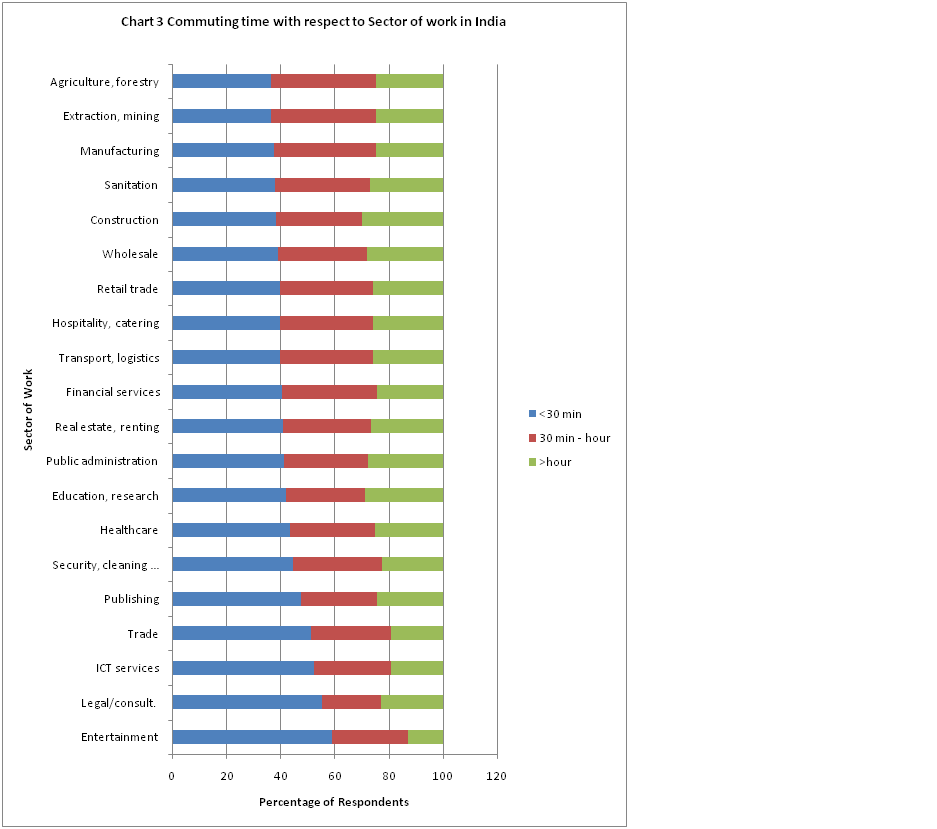The data for Commuting Time has been collected from the continuous and voluntary web survey of Paycheck.in. The survey contains questions about wages, education, occupation, industry, socio-economic demographics, and the like. This analysis uses data gathered from January 2012 to January 2014 with almost 200,000 observations from 24 countries, out of which more than 8,000 observations used are from India.
Main Findings
A Comparison of Commuting time of 24 WageIndicator Countries
1. A general pattern can be seen from the preliminary analysis:
- People in the USA and Europe enjoy shortest time on the way to work.
- People in Ex-USSR, Latin America and Asian countries spend a little more time as compared to the USA and Europe.
- Commuting time in India is shorter than in other Asian countries like Indonesia and Sri Lanka, but longer than other regions of the world.
2. Possible reasons for differences in commuting time:
- Infrastructure development: Good roads and efficient traffic management system can reduce commuting time as seen in USA and Europe.
- Public Transport System (PTS): Efficient PTS may result in more people using public transport instead of private vehicles, hence reducing traffic on the roads.
- Number of Vehicles: The number of vehicles at a given point of time on the road, especially during peak office hours.
- Cultural Differences: If people prefer to use public transport or car pool services over private vehicles, it may affect the number of vehicles on the road at a point of time.
Chart 1 shows a cross-country comparison of 24 WageIndicator Countries.
Working professionals in India spend less time commuting, compared to those in other Asian countries like Indonesia and Sri Lanka. 4.4 per cent people in India, spend 1.45 to 2 hours travelling to work (one-way travel), while in Indonesia 4.65 percent people and in Sri Lanka 7.53 per cent people spend long hours commuting to work. On an average commuter in these countries spend around 3 to 4 hours a day or 15-20 hours a week getting from home to work and then back.
Commuting time with respect to Professional Classification in India
- Analysis of data from Paycheck.in shows that:
- Agricultural workers and clerks have longest commuting time
- “White collar” managers, professionals and technicians have shorter commuting time as compared to agricultural workers and clerks.
- Elementary workers, factory workers and service and sales staff have lowest commuting time.
2. The possible reasons for this can be:
- Agricultural labourers reside mostly in rural areas (infrastructure facilities are not developed and public transport access is limited), and commute mostly on foot, two-wheelers or tractors.
- “White collar” professionals probably commute from their houses in suburbs to offices in the city center. Most of the companies in India have multiple offices in the city and allow their employees to choose the office they want to work from (depending on their residential location). The ‘work from home’ concept has also picked up in India, especially among this group.
- Elementary workers and factory workers usually stay in peripheral areas of the industrial zone and thus, their commuting is the lowest. The sales and the service staff are usually assigned a zone/area for their work. They may relocate themselves based on their assignments.
Chart 2 shows a comparison of commuting time with respect to Profession.
Commuting time with respect to Sector of work in India
- As for sectors of work, the analysis shows some divergence in observations. They are as follows:
- People in “office jobs” like entertainment, legal and consultancy, ICT, Trade, Journalism and Healthcare enjoy short commuting times.
- People working in agriculture, construction, mining, etc., sectors have more commuting time.
2. The possible reasons for this can be:
- People working on farms, building sites, mines may be required to travel for longer time, since these are likely to be located away from the residential areas.
- People in “office jobs” like entertainment, legal and consultancy, ICT, Trade, Journalism and Healthcare also come under “white collar” jobs for whom the commuting time to work is usually lower as explained above.
Chart 3 Commuting time with respect to Sector of work in India



